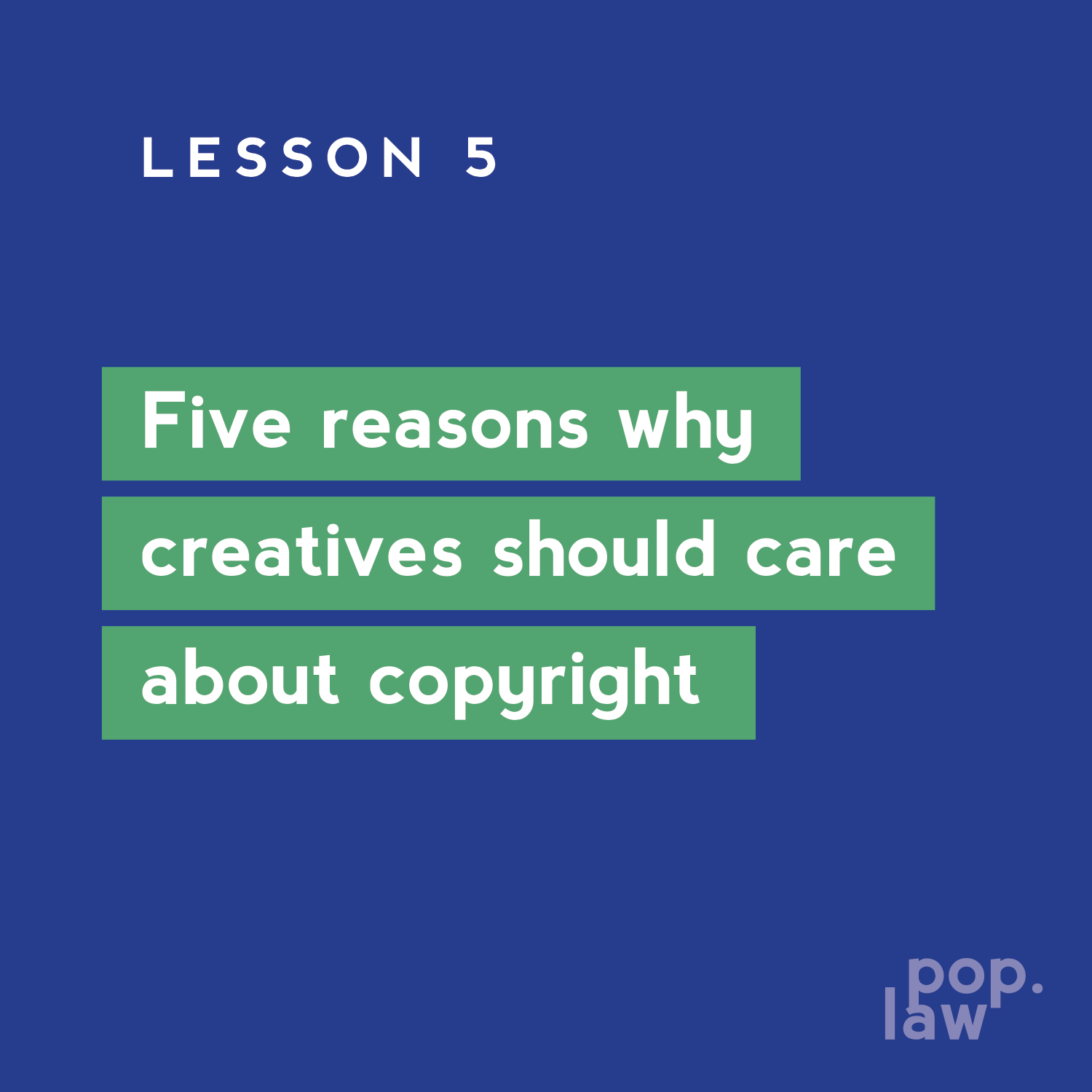Five reasons why creatives should care about copyright
I don’t have a single creative bone in my body. Not one. Growing up I would be happy to follow instructions: colour in the lines, maybe join the dots at a push. As I get older, this has gotten worse. It’s taken me about a year to learn three chords on the ukulele.
For someone who panics at the thought of being asked to do anything creative, I have somehow ended up in an area of law that revolves around protecting creative works. It’s meant that, for almost a decade, I have had to learn what it’s like to see things from the perspective of artists and musicians. What I have found is that, when most creatives begin the process, the immediate focus and concern is not about legal considerations. Shocking – I know.
What’s worse though, is that I have also come to realise that lawyers aren’t so good (read: terrible) at sharing knowledge, opting instead to wait to be the knight in really expensive armour to come solve the issues.
So, here is my attempt at encouraging creatives to care about their intellectual property rights by dispelling the myth that it needs to be a complicated and expensive exercise. If it seems too overwhelming, care at least about copyright.
Here’s five reasons why.
REASON 1
It puts you in control
Owning the copyright in your creative work gives you the exclusive right to use, reproduce, or amend your work.
If you are able to prove that you own the copyright in a particular work, you can use this to prevent others from taking advantage of your rights. In instances where there has been unauthorised use of the copyrighted work, only the owner can sue for damages.
reason 2
It doesn’t cost anything
A lawyer telling you that you can get legal protection for free? Shut. The. Front. Door. It’s true though. Provided you meet certain requirements, copyright exists in the work that you create. These requirements include:
a. you are the owner of the work;
b. you aren’t tied into any agreements that control what you do;
c. you have reduced your creative work to something tangible.
Unlike trade marks, patents, or designs, you don’t need to register your copyright in South Africa. Even better, most social media companies will allow you to file a free complaint against unauthorised use of your copyright works on their platforms, which means less legal fees and more chai lattes to go.
reason 3
It gives you the option to enforce your rights internationally
We are living in a digital world that is getting smaller the more our time online grows. Because of the ease at which we can access things on the internet, it’s meant that copying as become as easy as Ctrl+C, Ctrl+V.
Again, unlike its other IP cousins, copyright has a broader reach internationally because South Africa and many other countries have signed a treaty called the Berne Convention. This treaty means that, kind of like mom’s advice, its signatories need to treat people of other countries the way they would treat members of their own.
Practically, it gives you the opportunity to stop someone on the other side of the world from using your artwork or song, without your permission, even though you don’t have any registered rights in the other person’s country.
reason 4
It provides protection long after you’re gone
Copyright can be an asset just as much as money in your bank or your house. Therefore, you can identify it in your will and pass it on however you deem fit. For the most part, copyright subsists in creative works for the lifetime of the author plus 50 years. That’s a long time for your family to benefit from something you created, even if you aren’t around to exploit the work.
reason 5
You can make a living off it
Sure, there are some people that create work based purely out of a desire to do so. But I’m sure even those would like to reap some money out it. This goes beyond just selling the physical piece of artwork you create. By ensuring you own the copyright in it, you can license its use over and over again to create postcards, prints, album covers and more. Want to earn some cents every time your song is played in a retail store? Same principle applies.
When things go wrong, as they often do, trying to fix the problem is like unscrambling an egg. It’s easy to give advice on what should have been done after the fact. But that’s about as helpful as being handed a fork to eat your soup. Get things done right at the beginning and you will save yourself a lot of hassles and expense down the line. The world needs more art and music. Give yourself the best opportunity to create more of that and spend less time and money on the lawyers – the world has enough of those.
